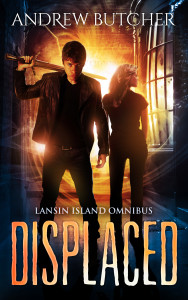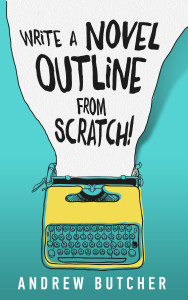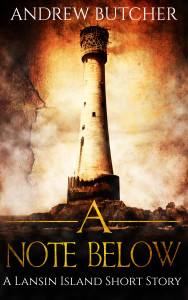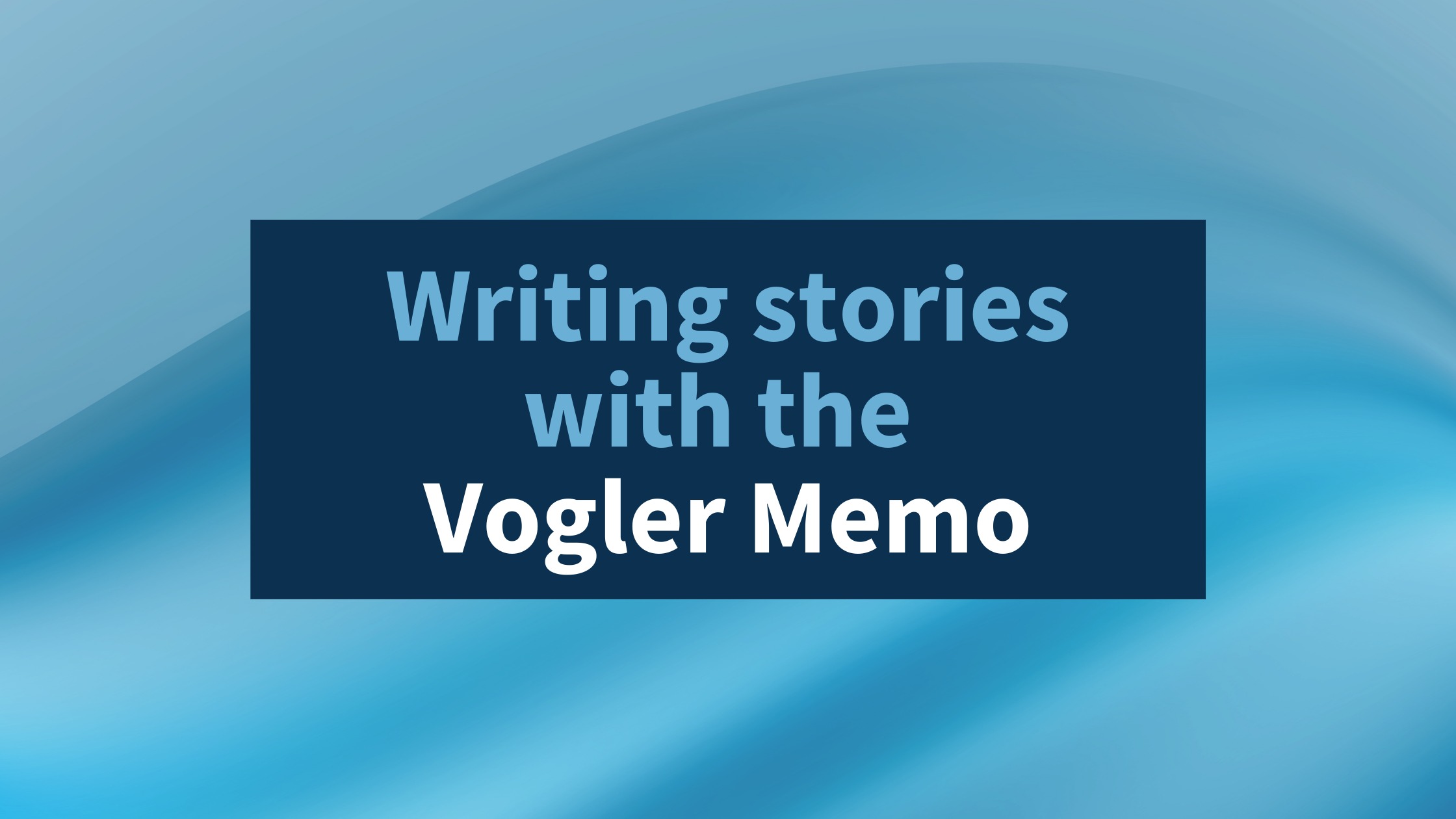Why can’t I write a book series?
This simple thought changed everything for author Andrew Butcher. Like many writers, Andrew never dreamed of becoming an author—in fact, he didn’t even like reading much until he discovered Anne Rice’s The Vampire Chronicles as a teenager.
“I devoured the series,” Andrew said. “I was at college at the time, and I began writing whatever came to me, with no thoughts of plotting or character development or anything like that.”
(A note for American readers: college = high school.)
But it was Charlaine Harris’s The Southern Vampire Mysteries that got him wondering why he wasn’t writing the kind of dark and gruesome novels he loved to read.
“It was as simple as that,” said Andrew. “I began plotting and planning my series, then began writing, and eventually I had my first book, A Death Displaced.”
A Death Displaced is the first of the Lansin Island books, a paranormal series set on a mysterious island in the Celtic Sea. Andrew is currently working on some nonfiction projects and a new standalone fiction piece, but still plans to write more Lansin Island novels.
Andrew took a break from juggling his many projects to chat with Invisible Ink about his writing life, and offer some sage advice to new writers. Read our interview with Andrew Butcher below!
To keep up with Andrew’s writing, be sure to sign up for his newsletter. Andrew can be reached on his website, www.andrew-butcher.com, as well as on his Facebook and Goodreads author pages. You can also follow him on Twitter @Andybutch13.
Your paranormal books, the Lansin Island series, have reached the No. 1 spot for their categories on Amazon (Paranormal & Urban Fantasy/Paranormal Suspense/Supernatural Suspense). How did you get the idea for the series?
The idea for the Lansin Island series essentially came from a “what if?” question. It was a question I came up with in college, years before I started writing seriously: If someone was fated to die, but they were somehow saved, what would the consequences be?

From there, I kept asking and answering more questions until I had the beginnings of a story. I came up with the premise that the person who was saved from their fated death would begin to see ghosts, because although they were physically saved, fate wouldn’t let them off that easily. The person would still spiritually die and their soul would move on to the Otherworld. This state of being “displaced”—anchored in two worlds at once—would give the person the ability to see spirits from the realm that lies in between the two worlds: the Spiritworld.
From that initial “what if?”’ question, I managed to develop an entire world and rules for it; every new answer created more questions, which needed more answers. It’s a lot of fun coming up with ideas this way!
With the first three books in the Lansin Island series complete, you decided to branch out into creative writing instruction. Tell us about Write a Novel Outline from Scratch!, your popular video course on Udemy, and now an eBook as well.
Write a Novel Outline from Scratch! guides anyone with an interest in writing fiction through the entire process of outlining a story (from scratch!), so that by the time they have finished doing the exercises, they will feel ready to write.
I decided to create the video course because I know a few people who constantly talk about how much they would love to write, BUT [insert excuse]. Often the reasons they haven’t begun writing are variations of “I don’t know where to start,” or “I have a great idea, but I don’t have any characters,” or simply “I don’t think I’d be any good at it.”
And when I thought about it, I realized that most people start from the same place, really. I wasn’t born with story ideas in my head. I didn’t know much about writing when I began. But I managed to create a process that has helped me write three full-length novels, and I’ve put my work out there.
about it, I realized that most people start from the same place, really. I wasn’t born with story ideas in my head. I didn’t know much about writing when I began. But I managed to create a process that has helped me write three full-length novels, and I’ve put my work out there.
I hope that people who read Write a Novel Outline from Scratch! or take the Udemy course will come away feeling confident in their ability to outline a complete novel, including character bios, location summaries, and much more. There are so many naysayers who will happily tell you why you shouldn’t, can’t, or will never write a book—but the truth is, you can if you want to, whether you believe in yourself or not. This is one tool to help you begin your writing journey.
What have you learned from teaching others about outlining? Has your personal outlining process changed?
There are too many things I’ve learned to name them all! Students of the Udemy course share their own outlining processes on the course’s forum all the time, and I’ve learned loads of great tips from them. So yes, my process has changed a little because of this.
I think writers are always adapting their approach to writing, learning more with each new project. I try to never think of my own process as a fixed formula. I encourage all of my students to take the parts that work for them, leave the parts that don’t, add anything else that already works for them, and keep on experimenting.
“I love great characters and compelling stories. I also read plenty of nonfiction, because I hate the thought of stagnating; stagnation equals death, in my mind.”
Any other advice for budding authors?
Learn to trust in your own voice and writing process. Take criticism with a pinch of salt. Of course, you should take feedback on board. But there are so many writers and readers out there who try to tell you that their way is the way, when actually some of their advice might be generally helpful, but that doesn’t mean it’s right for everybody. It may even be harmful. And don’t obsessively check reviews and sales; these things fluctuate and will throw you off center if you come to rely on them.
You’ll hear that to be a writer you have to write every single day. You don’t. Also, some people will say that if you’re not enjoying the writing process, then you’re doing something wrong and your quality of writing will drop noticeably. Not true! I’ve written while in almost every mood and even while depressed, but it doesn’t seem as if any, or at least many, readers have been able to tell.
The list of “truths” and “rules” regarding writing is endless. But ultimately, you have to decide for yourself what feels authentic. None of my favorite authors are known for following the rules; they’re known for the exact opposite.
Finally, learn to “switch off” from your writing when you’re not doing it. Otherwise the people around you will sense that you’re not really present. In other words, seek balance.
Are you a tried-and-true “plotter,” or do you consider yourself a “pantser” at times?
It’s different for each project, but I think in general, I’m about 80 percent plotter and 20 percent pantser. But it also depends on what part of the writing process I’m at. Most of the time I plot so heavily that I (think I) know the story inside out, but then when it comes to writing, I mostly put the outline aside and just go with the flow. This allows me to enjoy the writing, and to be surprised if the story takes new directions. But I also have the comfort of knowing that if I get too far off track, I can look at my outline again.
What inspires you to write if you’re not in the mood?
I find it really difficult to do anything I don’t feel in the mood to do. If I get any whiff of obligation, I will find a trillion ways to resist doing the work. I’m so good at procrastinating that I even wrote a short nonfiction piece called How to Procrastinate … Like a Pro!: 101 of the Most Deadly Procrastination Techniques. (Even writing this book was a practice in procrastination; I was avoiding finishing the third book of the Lansin Island series at the time!)
If I’m really struggling to write, I create a reward system where I write for two or three hours and then take a break to eat or watch an episode of whatever TV show I’m currently addicted to. I also try to remind myself before sitting down to write that most things are never as difficult or frightening as we imagine them to be. After breaking through the first twenty to thirty minutes of writing, in which the resistance is strongest, I usually find some flow and enjoy it more than I expected to.
You’re entirely self-published. What does your editing and publishing process look like?
I’m really happy with my editing process because I was lucky enough to find a great editor I’ve been working with for a few years now: Leah from Invisible Ink Editing.
 Because I’m a bit of a perfectionist, my first drafts are usually fairly clean (I think—Leah might disagree!). But I always go over everything again at least once myself before sending it to Leah, who then makes her edits and sends it back to me. I then approve or reject her edits (I approve 99.99 percent of them!), and then I usually send a copy of the book to around fifteen beta readers, who are fans of my series. They usually notice a couple of easy-to-miss mistakes, which I edit immediately. If more than two or three of my beta readers comment on the same issue, like some dialogue sounding out of character, I will look at that particular thing and consider changing it. But normally this is just a final sweep.
Because I’m a bit of a perfectionist, my first drafts are usually fairly clean (I think—Leah might disagree!). But I always go over everything again at least once myself before sending it to Leah, who then makes her edits and sends it back to me. I then approve or reject her edits (I approve 99.99 percent of them!), and then I usually send a copy of the book to around fifteen beta readers, who are fans of my series. They usually notice a couple of easy-to-miss mistakes, which I edit immediately. If more than two or three of my beta readers comment on the same issue, like some dialogue sounding out of character, I will look at that particular thing and consider changing it. But normally this is just a final sweep.
Then I pay for a professional book cover and formatting. I’ve been using Damonza.com for these services for the past few years, and I highly recommend them. It normally takes up to a month for me to decide on a cover and formatting I’m happy with.
Finally, I fill out all the information on Amazon and the other platforms and hit “publish”!
Lansin Island seems like an interesting place to live. Would you want to live there if you could?
Knowing what is really going on behind the scenes on Lansin Island, I don’t think I would live there. I’d go on holiday there, though, especially for one of the celebrations they hold for the seasonal Sabbats! And I’d visit the The Burning Grounds too.
If you could ask one of the characters in the Lansin Island series to tea, who would it be?
I don’t want to give away spoilers, but it would have to be someone from the Otherworld, because I’d want to know everything about their world and their magic! Otherwise, it would be Tamara Trewin, the last living descendent of the Lansin Island Witches. Because she’s a true witch, I’d ask her about her magic too. Also, I think she’d make a good cuppa.
Andrew Butcher currently resides in Hitchin, England, with his partner and their pet tortoise, Tricky. They hope to move to the Costa Blanca region of Spain one day.
The Lansin Island series, Write a Novel Outline from Scratch!, and more of Andrew Butcher’s books are available on Amazon and other online eBook retailers. To learn more about Andrew’s writing or to get in touch, visit www.andrew-butcher.com.





